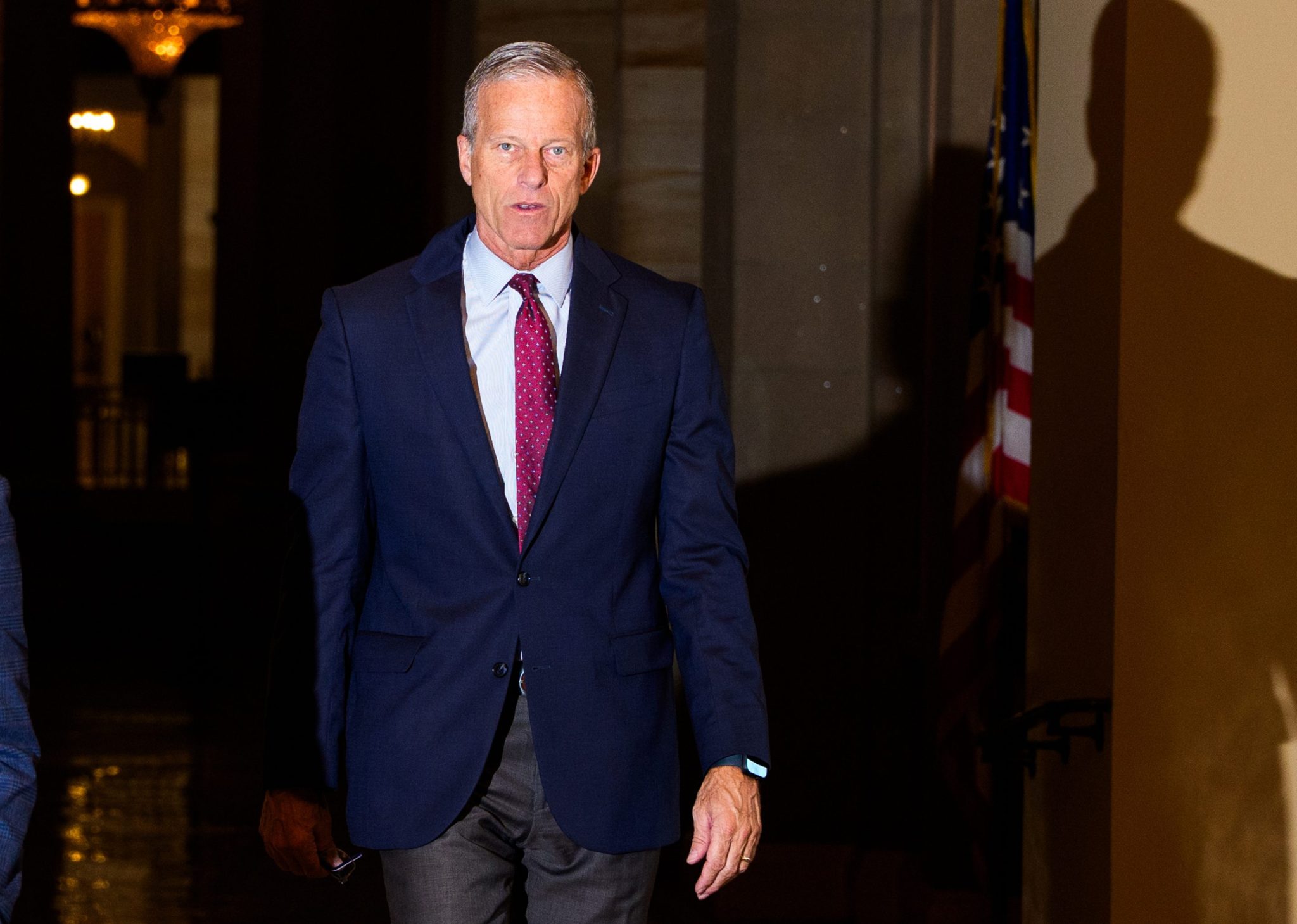
U.S. stock futures were positive on Sunday evening as a bill that will end the longest-ever government shutdown advanced in the Senate.
A short-term spending bill cleared a procedural hurdle after seven Democratic senators and one independent voted with Republicans.
The breakthrough came as SNAP payments have been on hold after a brief respite, while Transportation Secretary Scott Duffy has issued dire warnings about air travel ahead of Thanksgiving with thousands of flights canceled this weekend.
Futures tied to the Dow Jones industrial average climbed 66 points, or 0.14%. S&P 500 futures were up 0.68%, and Nasdaq futures jumped 1.19%.
The yield on the 10-year Treasury rose 4.1 basis points to 4.134%. The U.S. dollar was up 0.09% against the euro and up 0.32% against the yen.
Gold rose 1.16% to $4,056.50 per ounce. U.S. oil futures climbed 0.74% to at $60.19 a barrel, and Brent crude rallied 0.64% to $64.04.
The bill would extend current funding through Jan. 31 and pay for SNAP and Veterans Affairs for the rest of the fiscal year, which ends next September.
Democrats would not get an extension for Affordable Care Act subsidies, which expire at the end of the year and was their core demand during the shutdown.
Instead, they will get a promise that the Senate will vote on extending the subsidies by December, terms that Democrats rejected over a month earlier.
Because there’s no guarantee that ACA subsidies will continue, most Senate Democrats voted against the spending bill. But ABC News said they will make subsidies an issue in next year’s midterm elections.
Several House Democrats said they won’t vote for the bill because it doesn’t extend the subsidies.
“That’s not a deal,” Rep. Richie Torres said on X. “It’s an unconditional surrender that abandons the 24 million Americans whose health care premiums are about to double.”
Rep. Greg Casar called it a “betrayal of millions of Americans counting on Democrats to fight for them. Republicans want health care cuts.”
“Accepting nothing but a pinky promise from Republicans isn’t a compromise — it’s capitulation,” he added.
Letting the subsidies expire also presents political risks for Republicans as open enrollment season has already shown how high insurance premiums will jump without them.
A KFF analysis last month of ACA marketplace data found that 57% of enrollees live in congressional districts represented by a Republican.
“While a relatively small share of the national population gets their coverage through the ACA Marketplaces, in some districts, the number of ACA enrollees could be enough to swing a close election,” KFF said last month.
Credit: Source link















